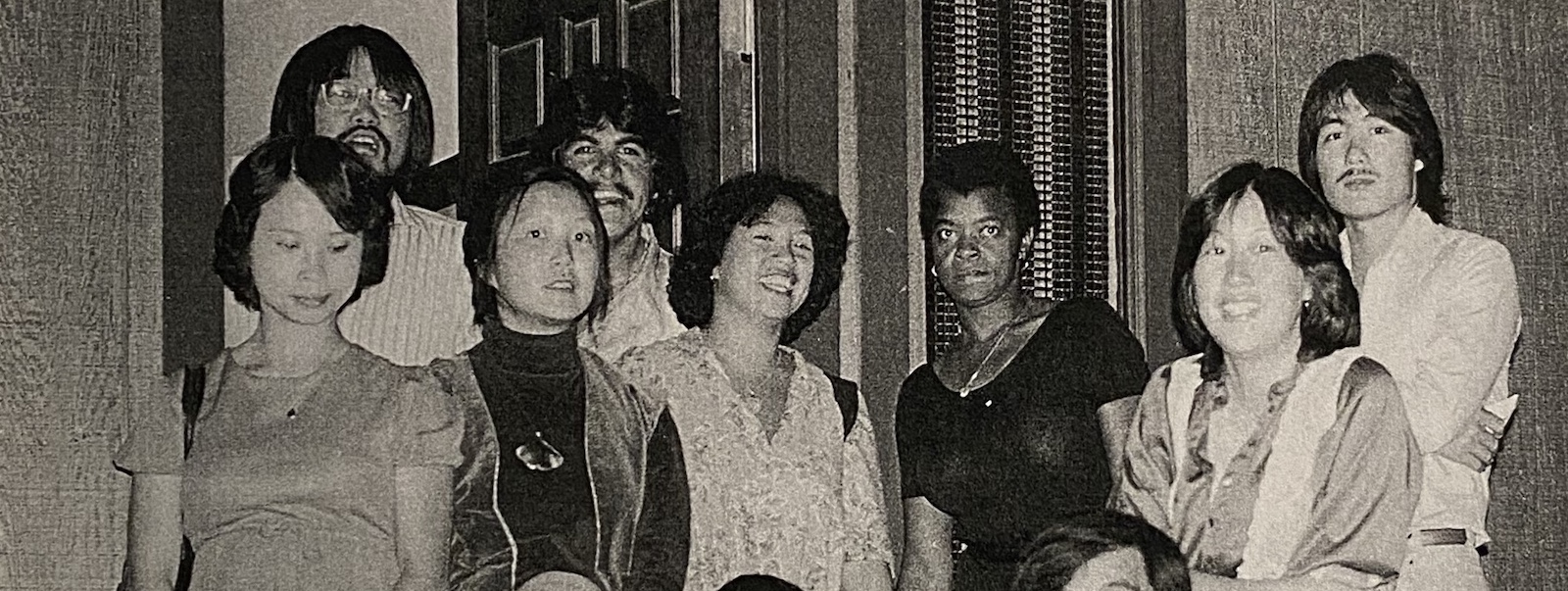Key Players in Asian American & Ethnic Studies at De Anza
The development of Asian American and Ethnic Studies at De Anza College has been shaped by the collective efforts of deans, professors, counselors, students, and community organizers over the decades. This page honors the individuals who, though no longer at De Anza, played pivotal roles in establishing and sustaining these programs.
Our selection criteria focused on two main factors: those who were among the earliest involved in the program's inception and those who significantly influenced its development. For consistency, we did not include current De Anza members. We also did our best to find photos of each individual, although this was not always possible due to resource constraints.
We acknowledge that this list is not exhaustive and that our criteria involved some degree of subjectivity. We aim to offer a representative snapshot of the individuals who shaped the program's trajectory while recognizing that many others have also made valuable contributions along the way.
Susanne Chan
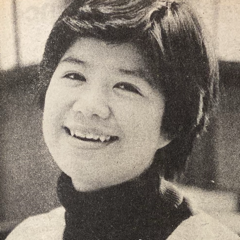
Chan (B.A. University of Maryland, M.S., Ed.S. State University of NY) was a counselor who came to De Anza in 1977. Chan co-founded the Asian Pacific American Staff Association (APASA) in 1990 along with Michael Chang, and served on more than 30 years of recruitment and search committees that helped hire future Asian American Studies faculty and staff.
Adrianne Chang
Chang was a student who led the petition for the some of the first Asian American Studies classes at De Anza. She also served on the coordinating committee for De Anza's first "Asian Week" event in 1970.
Michael Chang
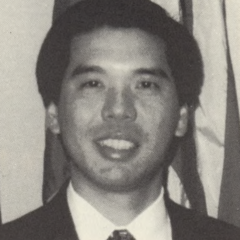
Chang (B.S., B.A. SFSU, M.A., Ph.D. Stanford University) was hired in 1989 on joint appointment by the Political Science and ICS Divisions to teach Asian Studies. He later became the first full-time faculty dedicated to teaching Asian American Studies at the college, and became the first Asian American Studies Department Chair. In 1997, Chang was elected as the first Asian American mayor of Cupertino, the same year that he founded the Asian Pacific American Leadership Institute (APALI), for which the opening ceremony was held at De Anza.
Jose Coleman
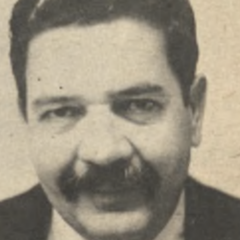
Coleman (B.A., M.A. University of California) was a Spanish professor at De Anza who initiated a district-wide study on minority needs that culminated in the A.B.C. (Anglo-Black-Chicano) project, a precursor to the Multi-Cultural Program and Ethnic Studies Division.
Chris Cross
Cross was a student and Vietnam War veteran who was part of the early Black Student Union and involved in the founding of the Multi-Cultural Program.
George Dabney
Dabney (B.A., M.A. Saint Louis University) was a history professor who taught the first Ethnic Studies class at De Anza in 1969. The class was called Racial and Cultural Minorities in the United States (Social Science 50, later Ethnic Studies 49). He later also taught History of the Black American in the United States (Black Studies 25).
Paul Fong
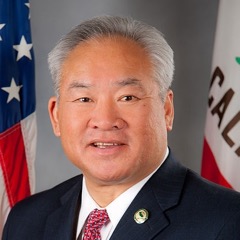
Fong matriculated as a student in 1971 at De Anza where he took some of its earliest Asian American Studies courses taught by Gloria Hom, Philip Lau, and Stephen Ngin, and was mentored by Edward and Shirley Kawazoe. After graduating from De Anza, he receiving a B.A. and M.P.A. from SJSU and later returned to De Anza as a part-time Asian American Studies instructor in the late 1970s. In 1993, he was elected to the FHDA District Board of Trustees where he served until 2008 when he became a member of the California State Assembly.
Donna Fung
Fung (B.S., M.A. SJSU) was an instructor and counselor at SJSU and De Anza who co-taught with Victoria Taketa. She was also an early member of the AACI Teaching Teams and founded the Transfer Center at De Anza.
Bob Gonzales
Gonzales was a student who was part of the early Chicano Student Union and involved in the founding of the Multi-Cultural Program. In 1972, he was hired by Richard Rios to run the Multi-Cultural Program's Neighborhood Youth Corps (NYC) initiative in which low-income minority high school students came to De Anza for a 10-week summer session to take classes and earn college credits. He later served on the ICS Advisory Council along with Paul Fong, Edward Morton, and Ebenezer Hunter.
Gloria Hom
Hom was a part-time Economics instructor at De Anza who also taught History of the Chinese in the United States (Asian Studies 20, later ICS 21) in the 1970s. In 1978, she led a study abroad trip to Manila, Singapore, Bangkok, and Taipei.
Ebenezer Hunter
Hunter (B.A., M.A. San Jose State College) was hired by the Ethnic Studies Division in 1970 to teach African American Studies. He later served as the Acting Dean of the ICS Division from 1988 until 1989 when Lydia Ledesma was hired. He was also a part-time football coach at De Anza and retired in 2010.
Tom Izu
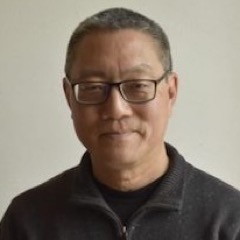
Izu originally joined as a staff member of the California History Center (CHC) in 1994, and later became the center's Executive Director. During his tenure at De Anza, Izu supported a range of social justice projects and initiatives including critique of Japanese American incarceration during WWII and labor activism in Silicon Valley. Izu also served as project director for De Anza's second AANAPISI (Asian American and Native American Pacific Islander-Serving Institutions) grant.
Edward Kawazoe
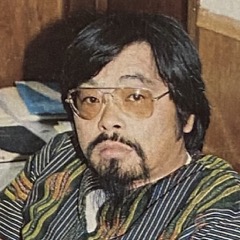
Kawazoe was hired by David Robles in 1972 as the Assistant Director of the Multi-Cultural Program and became the third Director in 1973 after Robles' departure. He helped hire notable Asian American staff on-campus including La Donna Yumori Kaku and Donna Fung. In 1974, he helped organize an Asian Student Retreat in La Honda along with Victoria Taketa, Donna Fung, and Mike Honda. Kawazoe resigned in 1980 to develop programming for the Indo-Chinese Refugee Assistance Program.
In addition to his position at De Anza, Kawazoe was a prominent activist and community leader. He was a founding member of AACI (Asian Americans for Community Involvement) and led the AACI Teaching Teams which helped develop an early undergraduate Asian American Studies curriculum.
Shirley Kawazoe
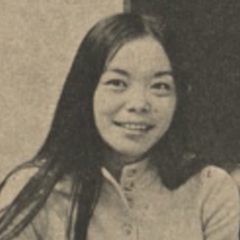
Kawazoe was an early member the AACI Teaching Teams. At De Anza, Kawazoe worked as a counselor in the Placement Center, helping students find off-campus jobs, and later became the Coordinator of the Transfer Center established by Donna Fung. She was also the sister of Edward Kawazoe.
Duane Kubo
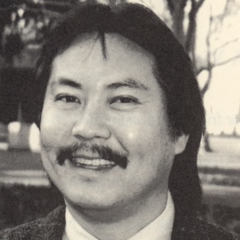
Kubo (B.A. UCLA, M.A. SJSU) was originally hired in 1985 as a video producer at the TV center on campus. In 1992, he became the Interim Dean of Creative Arts, and later also the Interim Dean of IIS. In 1995 he became the fifth Dean of IIS. During his tenure, Kubo helped formalize IIS as an academic division and developed a new Multicultural/International Center.
Philip Lau
Lau (B.A., San Francisco State College, M.S.W., California State College Hayward) came to De Anza as a counselor in 1972. He also taught a class called Contemporary Asian American (Asian Studies 22, later ICS 22).
Lydia Ledesma
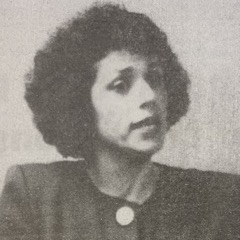
Ledesma (A.A. Saddleback Community College, B.A. CSU Fullerton, M.A. CSU Fullerton and San Diego, Ed.D. Pepperdine University) was hired in 1997 as the fourth Dean of the recently renamed Intercultural/International Studies (IIS) Division, replacing Acting Dean Ebenezer Hunter. Her major goals were to increase interest in the Intercultural Studies interdisciplinary major and internationalize the IIS curriculum. She resigned in 1993.
John Lovas
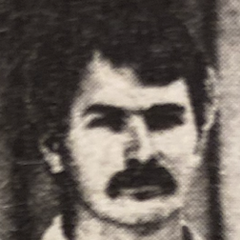
Lovas (B.A. John Carroll University, M.A. University of Utah) was an English professor at Foothill who worked with Jose Coleman to initiate a minority needs study and the A.B.C. (Anglo-Black-Chicano) project. He later authored De Anza's 35th anniversary retrospective which we used as one of our primary sources.
Olivia Mercado
Mercado (B.A. SJSU, M.A. UC Santa Barbara) was hired to teach Chicano Studies in 1974. She later became the Acting Dean of ICS in 1978 and the third Dean in 1979 until her resignation in 1985. During her tenure, she worked to secure federal and state funding for the Division following the aftershocks of Proposition 13 budget cuts and built an International Studies curriculum.
Moises Moreno
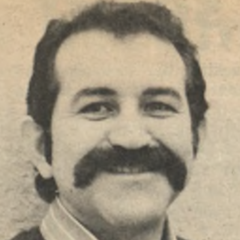
Moreno (A.A. Chaffey College, B.A., M.A. Stanford University), a Korean War veteran, was hired in 1972 to teach Chicano Studies. He also taught Cross-Cultural Perspectives for a Multicultural Society (ICS 12). Moreno retired in 2002.
Edward Morton
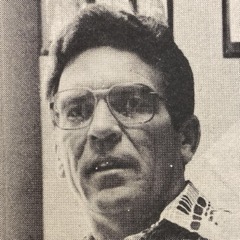
Morton (B.S. University of North Dakota, M.A. SJSU) was hired part-time in 1974 to teach Political Science. In 1975, he became a full-time Ethnic Studies professor teaching Native American Studies and served on the ICS Advisory Council. He also advised the Native American Cultural Club, started De Anza's annual Powwow in the 1980s, and was President of the American Indian Council in Santa Clara Valley. He retired in 1995.
Stephen Ngin
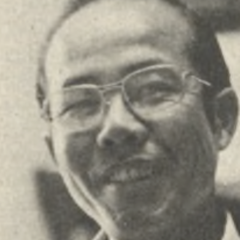
Ngin (A.A. San Jose Junior College, B.S., M.A. San Jose State College) joined De Anza in 1969 as a Sociology professor. In 1971, he began teaching one of the college's first Asian American Studies classes, Introduction to Chinese-American and Japanese-American Studies (Asian Studies 1, cross-listed as Sociology 25).
Stephen Ngin was also a Sociology professor at his alma mater, San Jose State College (now SJSU), where he developed and taught a class called The Asian American Experience (Sociology 196).
JoAnn Okabe-Kubo
Okabe-Kubo joined De Anza in 1981 and became the IIS Division Assistant in 2002 until she retired after the 2017-2018 school year. Like Lupe Robles-Sane, whom she worked closely with, Okabe-Kubo played a significant part in the development of Ethnic Studies at De Anza College and was a constant presence throughout multiple deans' tenures. She also had a background as an activist, including involvement in groups like Students for a Democratic Society (SDS).
Eric Opia
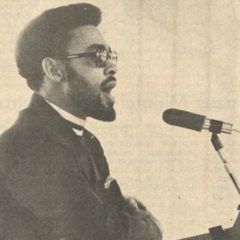
Opia (B.S. University of Nigeria) began in 1969 as an Ethnic Studies professor at De Anza, where he taught History of Africa (Black Studies 20A/B). In 1974, Opia served as the Faculty Senate President.
Geraldine Parker
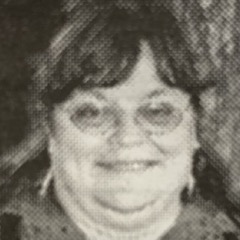
Parker (B.A. CSU Hayward) was a Native American Studies professor who joined De Anza in 1993 and served on the ICS Advisory Council representing Native Americans following Edward Morton's retirement. She retired in 2018.
Herbert Perkins
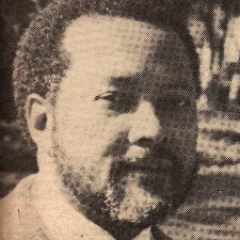
Perkins (B.A. University of Notre Dame, M.A. UCLA) was initially hired at Foothill as a Language Arts instructor and later became the second Ethnic Studies Division Dean at De Anza in 1975. He taught Racial and Cultural Minorities in the United States (Ethnic Studies 49, later ICS 49) and Cross-Cultural Communication (ICS 17) as well as English and ESL courses. In 1978, he took a leave of absence to pursue doctoral studies and returned in 1980. After Mercado's resignation, he served as Dean again from 1985 to 1988. He retired in 2013.
Richard Rios
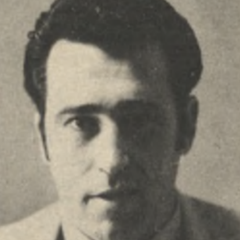
Hired in 1968 as the first Multi-Cultural Program Director, Rios reported to the Dean of Students and was responsible for the counseling and recruitment of minority students as well as proposal writing and EOP funding. Rios also served as the advisor for the first MEChA (Movimiento Estudiantil Chicano de Aztlán) and Black student groups on campus.
Ida Robinson
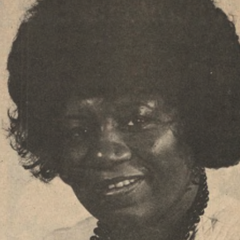
Initially hired as a counselor, Robinson (B.S. Wilberforce University, Graduate Study at Stanford University) was appointed as the first Ethnic Studies Division Chair in 1969. She also taught a class for the Division called The Black Writer in America (English 32, later Black Studies 32). Despite the growth of the Division, criticism of her and Ethnic Studies prevailed, causing Robinson to eventually leave De Anza in 1976.
David Robles
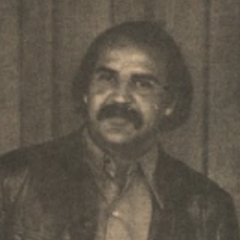
Robles (B.S. Chico State College, M.A. San Jose State College) started part-time at De Anza as the first Chicano Studies instructor in 1970. In 1971, he became a full-time Chicano Studies professor. In 1972, he became the second Director of the Multi-Cultural Program but left De Anza the following year to take a position with a non-profit agency in San Jose.
Lupe Robles-Sane
Robles-Sane served as the Ethnic Studies Division Assistant for over 25 years, spanning the tenures of multiple deans, including Herb Perkins, Olivia Mercado, Lydia Ledesma, and Duane Kubo. She was described as the "Dean's confidant" by Paul Fong, who considered her an activist and founder of Ethnic Studies. Her role was crucial in shaping the Division's direction through periods of uncertainty. Duane Kubo emphasized that figures like Robles-Sane were "the center of the Division" and could "make or break the relationship with the rest of the campus." Her younger brother, David Robles, was also involved in the early formation of Chicano Studies at De Anza. She retired in 1999.
Abraham Sung
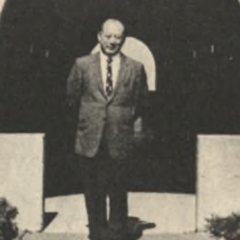
Sung (L.L.B. National Szechuan University, M.A. Baylor University), a first-generation Chinese immigrant, was hired in 1972 to teach Asian Studies. He retired in 2007.
Victoria Taketa
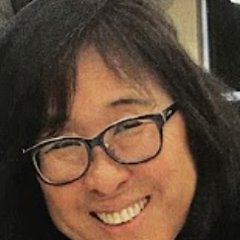
Taketa was a counselor at De Anza and Foothill who co-taught Asian American counseling classes with Donna Fung during the 1970s. She was also an early member of AACI.
Carolyn Wilkins-Santos
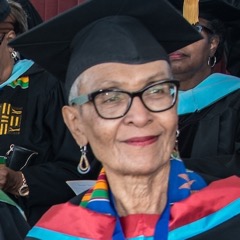
Wilkins-Santos (formerly Wilkins-Greene) (B.M. UT Austin, M.A. Stanford University) was hired at De Anza as a full-time IIS professor and Affirmative Action Chair in 1989. She later became Dean of the Social Sciences Division in 2002. Wilkins-Greene retired in 2019. In 2021, she was interviewed for the California History Center's Witnessing History project.
La Donna Yumori Kaku
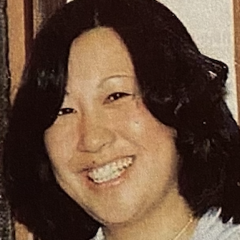
Yumori Kaku was a De Anza Student Activities Specialist, student group advisor, and an early member of the AACI Teaching Teams.
Norma Zoffman
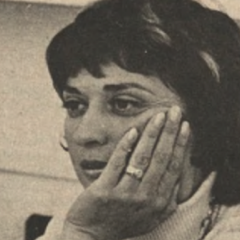
Zoffman (A.A. San Francisco College for Women, B.A. Sacramento State College) was hired as a part-time instructor in 1970 and became a full-time Chicano Studies professor the following year. In 1974, she became the first Coordinator of the Bilingual Center, where she worked until 1979.

